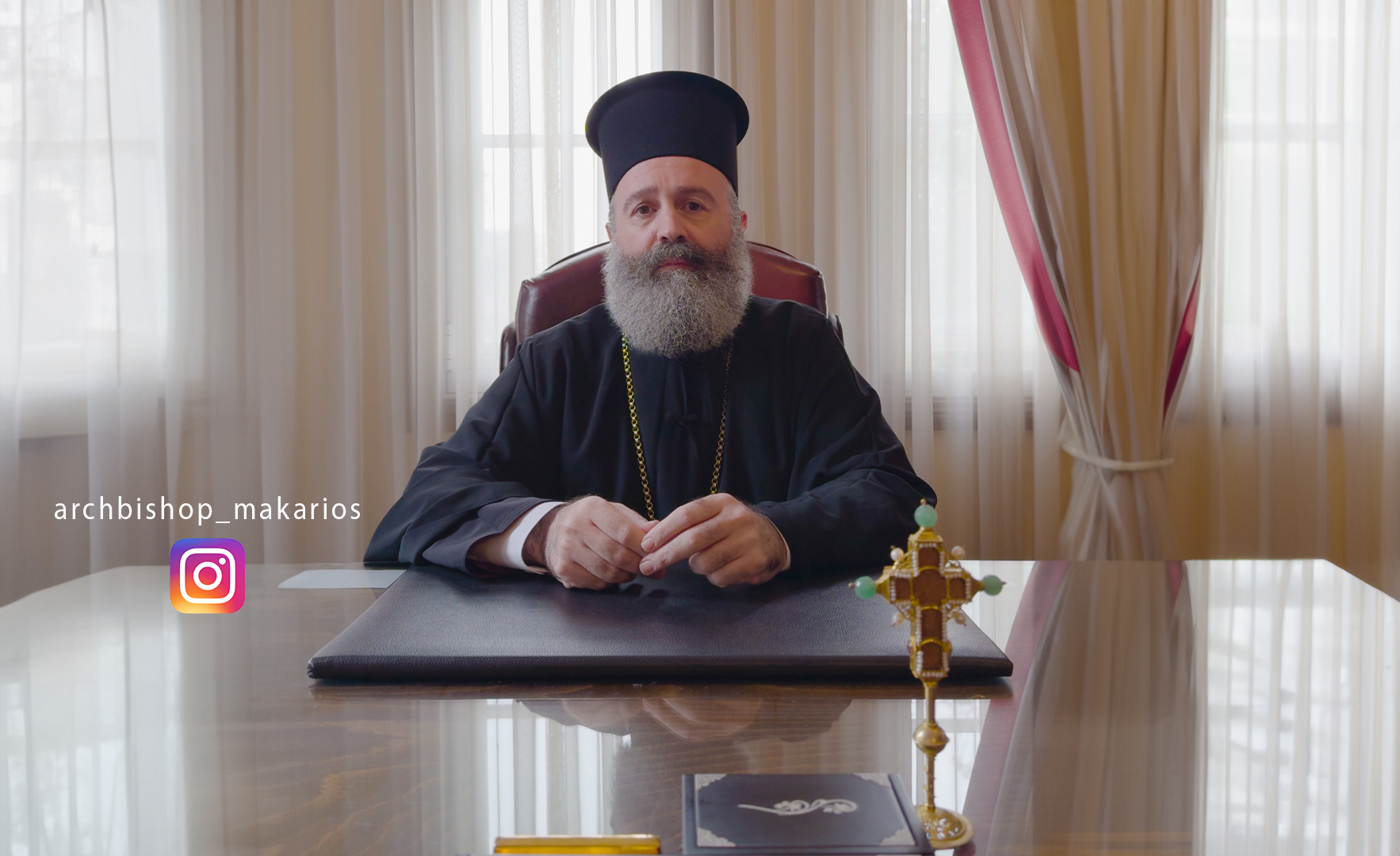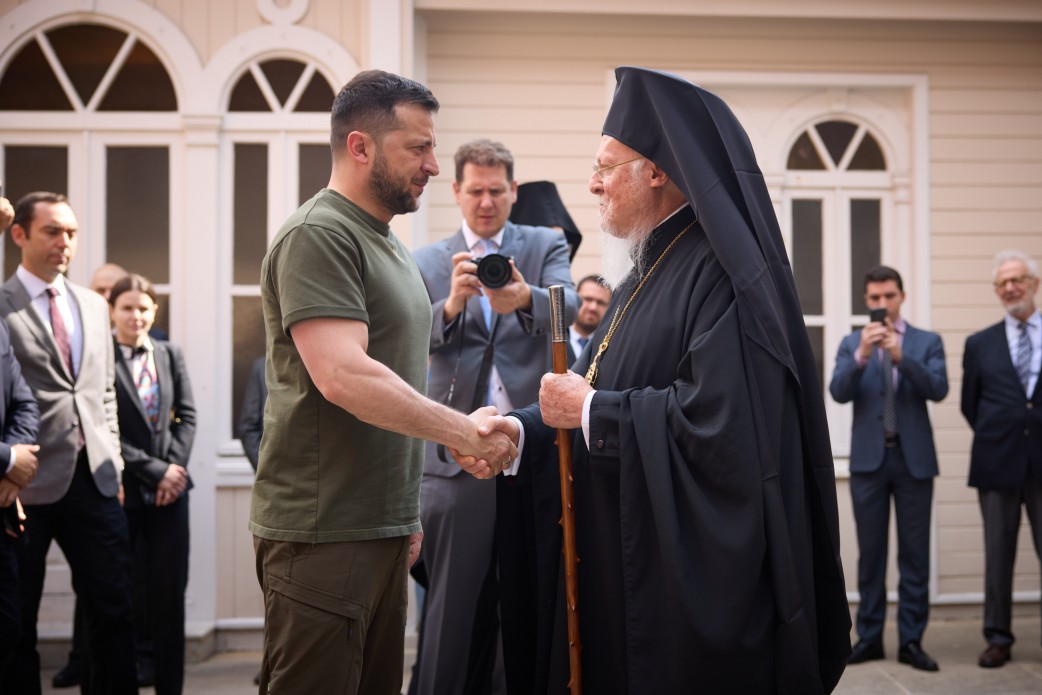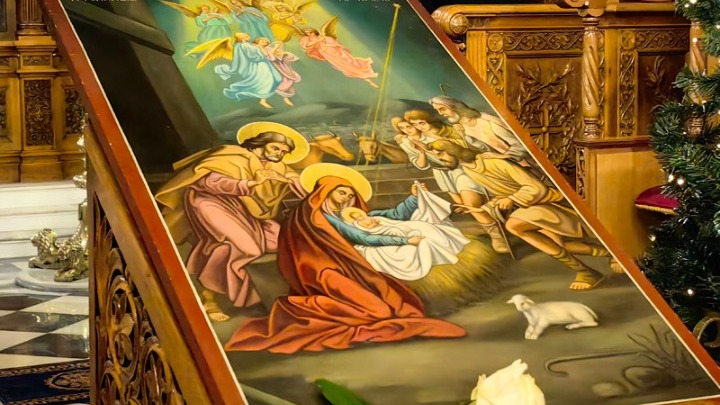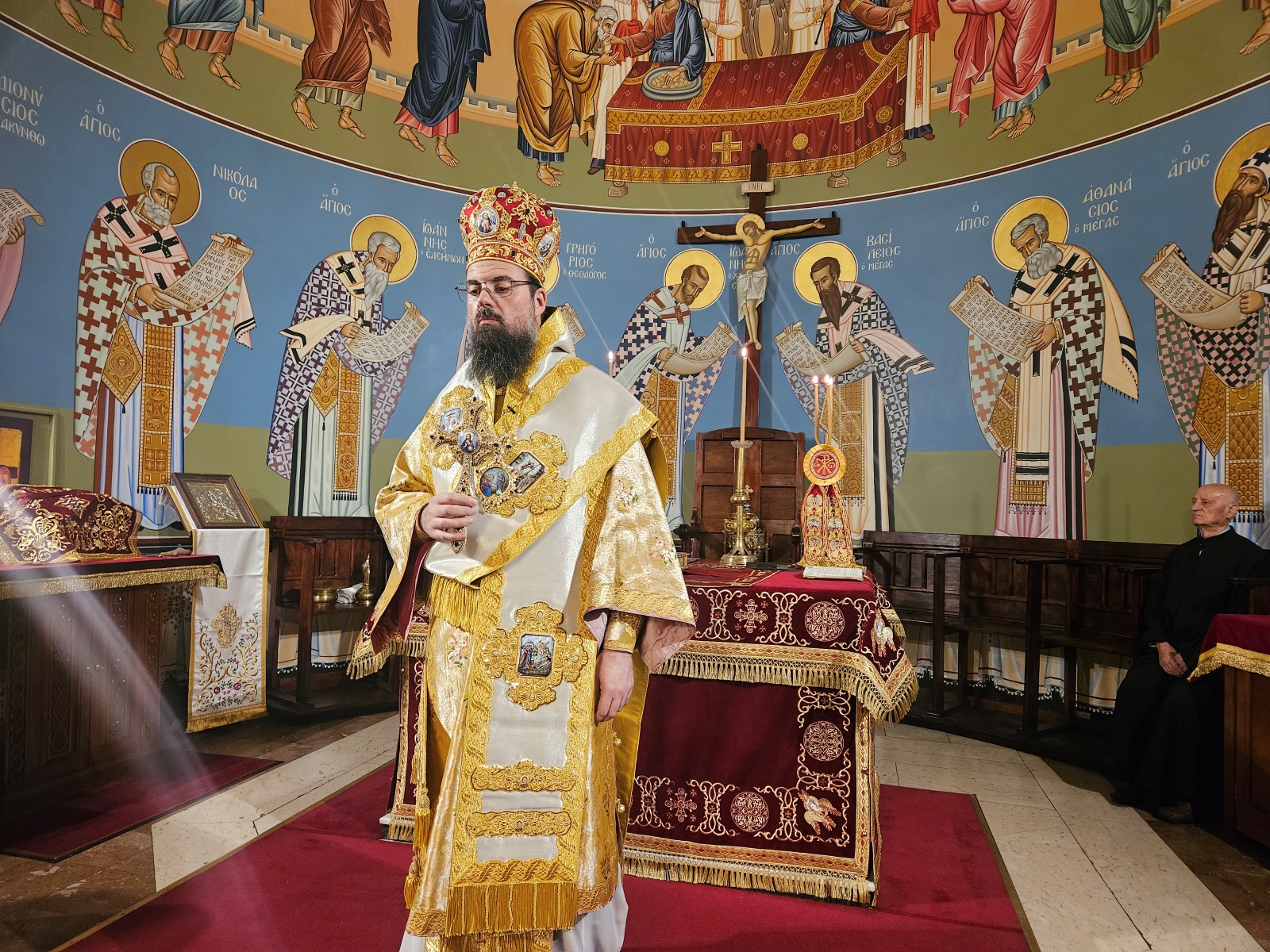(Video) The Christmas Message of Archbishop Makarios of Australia


“The birth of Christ constitutes a call to holiness” underlines His Eminence Archbishop Makarios of Australia in his Christmas Message. Specifically, His Eminence notes, among other things, that “God, instead of humiliating humanity, humbled Himself and consented to become human in order to make human person God. This means that the Incarnation of God is not merely an annual event or a commemoration of a significant religious occurrence. Nor is it experienced through decorations and lights, the exchange of gifts, or festive meals. The birth of Christ constitutes a call-a call to ascent, to progress, or, to put it more ecclesiastically, a call to holiness.”
The following is the message of the Archbishop of Australia for this year’s Feast of Christmas:
MAKARIOS
by the mercy of God, Archbishop of the Most Holy Archdiocese of Australia, Primate and Exarch of All Oceania, to the God-loving Bishops, the gracious clergy and monastic communities, to the Presidents of the honourable Ecclesiastical Committees and Philoptochos Associations, to the teachers and students in the Schools, to those who work in the philanthropic institutions and to all the Christ-loving plenitude of the Orthodox Church in Australia, grace and peace from our Saviour Jesus Christ born in Bethlehem.
Venerable Brother fellow Bishops and my beloved children,
We are a people who take pride in our history and glorious past, in our philosophy, poetry, arts, and culture. A characteristic example of global poetic art is the works of Homer, which marks the beginning of European and Western literature. In the Odyssey, Homer describes the adventures of Odysseus until he returns to his homeland. I will not make reference to all the events. I will only refer to the episode where Odysseus found himself on the island of Circe, who, with her magical staff, transformed all his companions into pigs. She did not torture them; she did not imprison them; nor did she take their lives; but, instead, she reduced them to the level of animals. For it was inconceivable for the sorceress Circe to grant the companions of Odysseus the ability to acquire her powers and magical authority.
When God decided to intervene in the world, He acted kenotically; and thankfully, He did not seek human advice. For if He had, we humans would have likely told Him to follow the approach of Circe-that is, to use His divine power to degrade humanity, punish it, and crush it. But instead of humiliating humanity, God humbled Himself and chose to become human so that He might make the human person ‘god’ by grace.
This means that the Incarnation of God is not merely an annual event or a commemoration of a significant religious occurrence. Nor is it experienced through decorations and lights, the exchange of gifts, or festive meals. The birth of Christ constitutes a call-a call to ascent, to progress, or, to put it more ecclesiastically, a call to holiness. Christmas means that I understand that, as a human being, I have potential and prospects, and that I am not confined to the level of an animal, whose capacities are limited and whose spiritual prospects are non-existent. Christmas means realising that life does not end, even when I die. On behalf of the Holy Eparchial Synod, I wish you all a Merry Christmas and a Happy New Year. May the year 2025 be joyful, peaceful, and salvific for your loved ones and co workers, for our Nation, and for our Church.
In Sydney, on the 25th Day of December 2024
†Archbishop Makarios of Australia
Primate and Exarch of All Oceania




